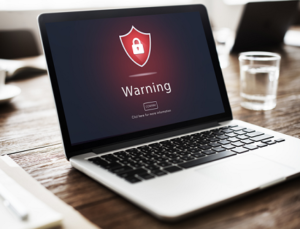
Is your online information safe?
Hacks, breaches, and cyber threats have increased right alongside the worlds use of digital devices. The more people go online, the more threats seem to appear!
While there’s no denying that the world wide web isn’t super secure, there are ways you can make it safer. With more people storing personal information online, educating yourself on cybersecurity tips and tricks is more important than ever.
To get started, take a look at these top 5 tips to stay safe online.
1. Use Antivirus Software
Hackers and cybercriminals often use malicious software (also known as malware) to attack your computer and get into your devices. So, when it comes to how to stay safe on the web, antivirus software is essential! This will detect any malware that’s on your computer and remove it quickly, reducing the chance of it harming your device.
Take a look at this article source for the best and worst virus protection programs currently on the market.
2. Always Use Complex Passwords
Simple passwords are a breeze to break in to, so make sure to keep yours complex! Avoid using any easy to guess words, like a name, a baseball team, or password (come on, that’s just asking for trouble!) and try to use a mixture of upper and lower case letters, special symbols, and numbers. Use a password manager to safely store your passwords so that you don’t forget any of them.
3. Use a VPN
Browsing the web safely when you’re on the go is tough. Logging into free WiFi is often the only option, but that opens you up to easy hacking. So, invest in a VPN (virtual private network) that will keep you secure when you’re on the internet so that you can safely browse wherever you are.
4. Be Wary of Spam
If you’re looking into how to protect yourself online, you’re going to find plenty about spam and phising. This is when people get you to enter personal information for fraudulent purposes, like your password or credit card details. Watch out for strange-looking emails, links, and quizzes, and always be sure you know who’s taking your information when you enter it.
In general, if you’re ever unsure then don’t enter your information. If it’s an important issue, like demands from a bank, then get in touch with the company through a trusted line (e.g. their registered phone number) to verify that it’s them contacting you.
5. Check Addresses
There are tons of fake websites out there that want to steal your information. Legitimate sites should start with HTTPS (not just HTTP) and have a padlock icon in the bar at the top of the page where you can see the URL. If they don’t, don’t enter any of your information!
Stay Safe Online
In the digital age, everyone should learn how to stay safe online. You never know, it could save you a lot of hassle and even money in the future! No one wants to be scammed, so remember these tips and keep your information secure.
If you liked this article, be sure to check out more tech tips on our website!

















